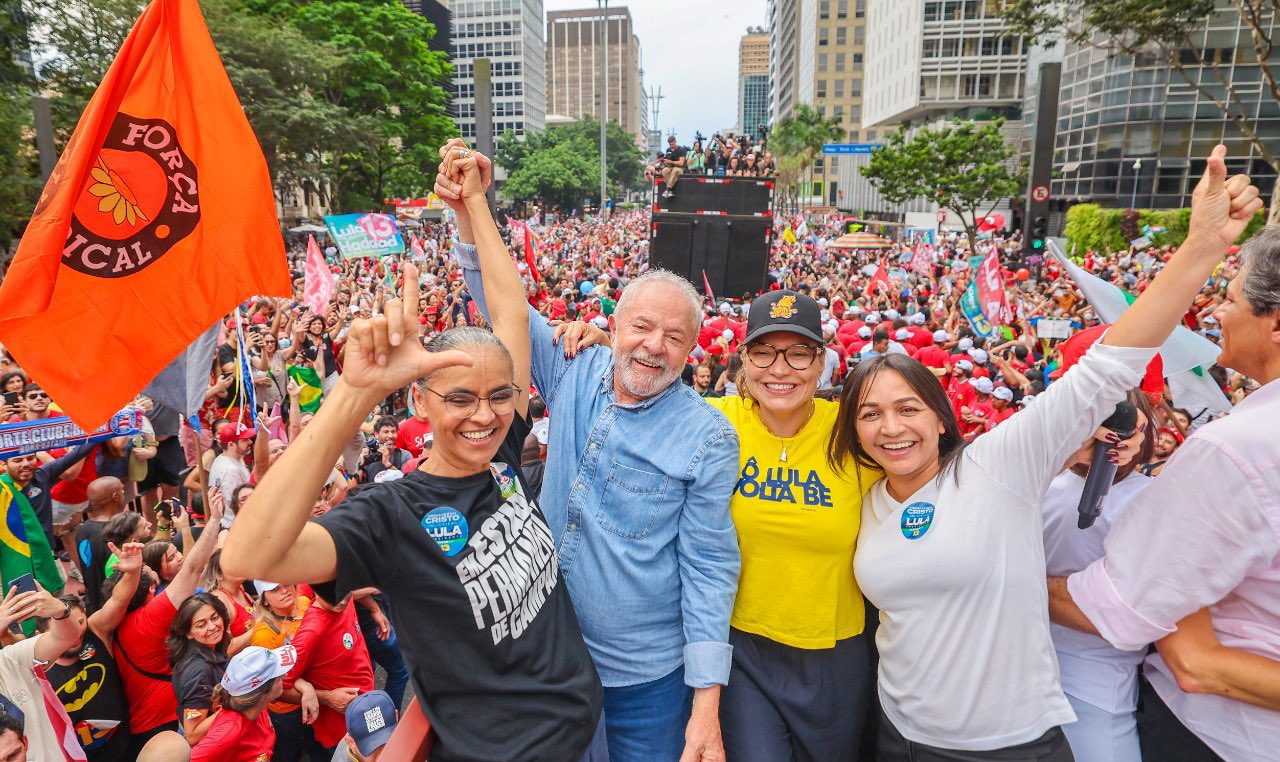In early September, many weeks before Brazil’s hotly contested elections, I’d published a post here citing what journalists and analysts were saying about the role of Brazil’s military. “If Brazil goes ‘January 6,” I asked, “what will its military do?”
Outgoing President Jair Bolsonaro, a former army captain, had courted the armed forces’ favor, and it wasn’t 100 percent clear what they would do if Bolsonaro were to reject a loss in the October 30 second-round vote. As of early September, I noted, few analysts with knowledge of Brazil’s military expected it to join in a pro-Bolsonaro coup. “But it’s not clear whether the high command will go along with other undemocratic behavior” like failing to respond to insurrectionary behavior among the president’s supporters.
In the end, this dog did not bark. Brazil’s military quickly accepted the election result. The security forces have not taken the side of pro-Bolsonaro protesters who have manned road blockades and demanded military intervention. The armed forces respected Brazil’s constitution and the work of its electoral court.
Here are a few things that analysts and journalists wrote in the elections’ aftermath.
Veja:
The morning at the Army Command started calm on Monday, one day after the election that confirmed Lula’s victory and the end of Jair Bolsonaro’s political project in the Planalto.
Following the behavior of respect to the institutionality registered during the whole government, the Army High Command did not manifest itself before, during, or after the elections.
As an institution faithful to the Constitution, it already awaits the next steps of the president-elect on Sunday and his transition team. “We will follow all the institutional steps for a smooth transition as we have always believed it should be,” a Command interlocutor told Radar.
The truck drivers calling for a military coup can now return to work. There is not the slightest risk of such a fantasy coming true.
The next meeting of the Army High Command – probably the last under Jair Bolsonaro – will be held on the last weekend of November. The transition will have already progressed and all issues will be dealt with looking to the future.
Some participants at ongoing protests across the country called for a military intervention to overturn the results of the presidential election. Bolsonaro’s vice president, Hamilton Mourão, a retired general, tweeted Wednesday that a military coup would “put the country in a difficult situation among the international community.”
The New York Times:
The military has not considered intervening in the transfer of power and, if the protests expand, it may urge the president to ask his supporters to go home, according to a senior military official who spoke on the condition of anonymity to describe private talks. The military, which helped oversee the election, found no signs of fraud, the official said.
The Ministry of Defense said that it would soon deliver its report on the vote’s integrity to election officials.
And now, president-elect Luis Inácio Lula da Silva is promising to remove thousands of active-duty military personnel from the posts they’ve been holding in the civilian part of the government. Veja reported:
Lula warned that he would ‘demilitarize’ the federal public administration. “We are going to have to start this government knowing that we are going to have to remove almost eight thousand military personnel who are in positions, people who didn’t take part in competitive examinations,” Lula declared, in April, during a meeting at the Central Workers Union.
…The ‘demilitarization’ that the party wants to promote should reach other areas of the government. A survey conducted two years ago by the Federal Audit Court (Tribunal de Contas da União) showed that the number of military personnel in civilian positions in Bolsonaro’s government doubled compared to Michel Temer’s government. There were 2,765 in 2018. In 2020, there were more than 6,000.
 RSS - Posts
RSS - Posts












